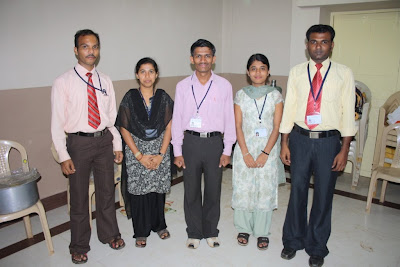[Gujarati translated: 'Forget not your mother-father']
Living alone in an apartment busy with artefacts from his worldly adventures, Raj Melgiri, a 70 year-young full time volunteer of Vidya Poshak's Graduate Finishing School captivates me with his life story. A story that involved an arranged marriage, working in the US for a period of time before his wife could join him, the many struggles and trials of starting at the bottom and then gaining financial freedom for his entire family. That financial freedom came at the opportunity cost of family time, albeit resulting in the best quality education for his children, a benefit they only came to realise recently.
Only last week, he was showing me his sky diving video, jumping out over the California countryside. "Take the chance and do it anyway" is his approach to life as he now prioritises his purpose in life – dedicated to the social service of training rural students with employment skills.
A dialogue ensued where I related my ancestral migration from India, via Kenya, to England. I spoke about similar struggles and challenges. It made me wonder – why, when our parents try so hard to give us everything that they did not get, such as access to money, comfortable education, luxuries in life (ever wondered how, what was a luxury for our parents generation has become a need for ours?), they forget to give us the things they actually did have? After all, the value-rich moral citizens they have become is the result, more so if anything, of the struggles they endured.
When I ask my student friends early in the training cycle, "Why do you want this job?" they would naively answer "to please my parents". This sentiment of pleasing parents, albeit a noble virtue, is not what the interviewer wants to hear. Previous employer responses include "are your parents applying for this job or you?". As harsh as this may sound, this innocence has been a teacher of values to me. The immense respect and duty these young Indians take for the parents puts us NRIs to shame.
As a young British Indian, my life has been relatively comfortable. How can parents expect us to understand their life journeys if ours is so different? I feel lucky to be here in Dharwad, Karnataka, as fellow working in grassroots development – where through the lives of these students, I learn about myself, my culture and my roots.
Our parents bust a gut for us. And just look how much they have achieved – they managed to survive in a strange foreign country, they took low-end jobs in poor conditions, went beyond racial prejudice to create financial security. They built a home for us. With our comforts, skills, opportunities and family support – it would be an insult to not achieve a multiple of their accomplishments.
If there is one lesson I want to leave India with, it is this: those
old folks gave us more than you will ever realise or understand. Anything you can possibly do to repay the debt will be insufficient. Beyond moral obligation, there is a deep loving bond that drives this desire to want to serve them through their twilight years, even knowing that sometimes, it may feel like God himself has sent them to punish us!
My Mum and Dad (being silly wearing 3D shades at home):

